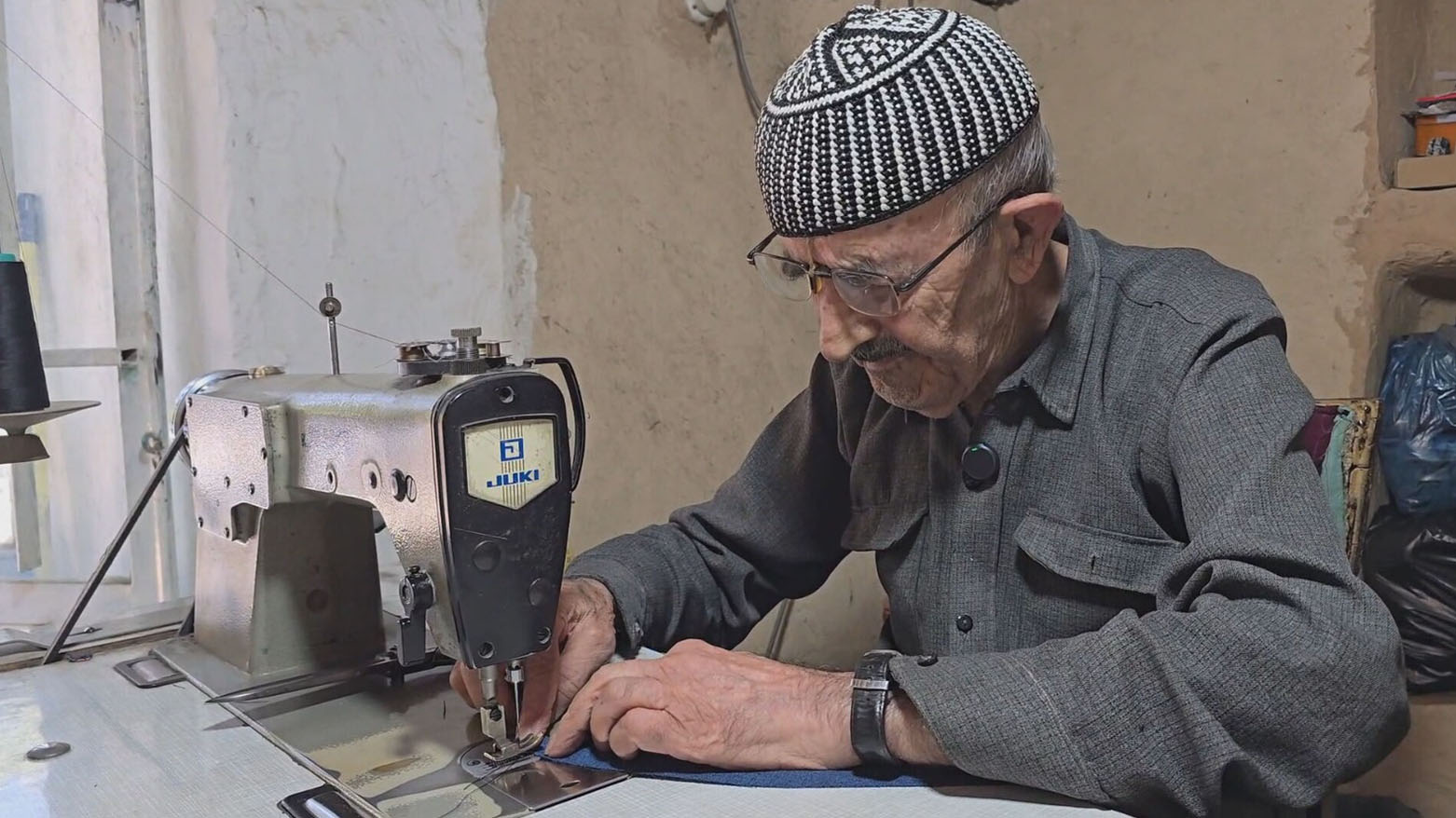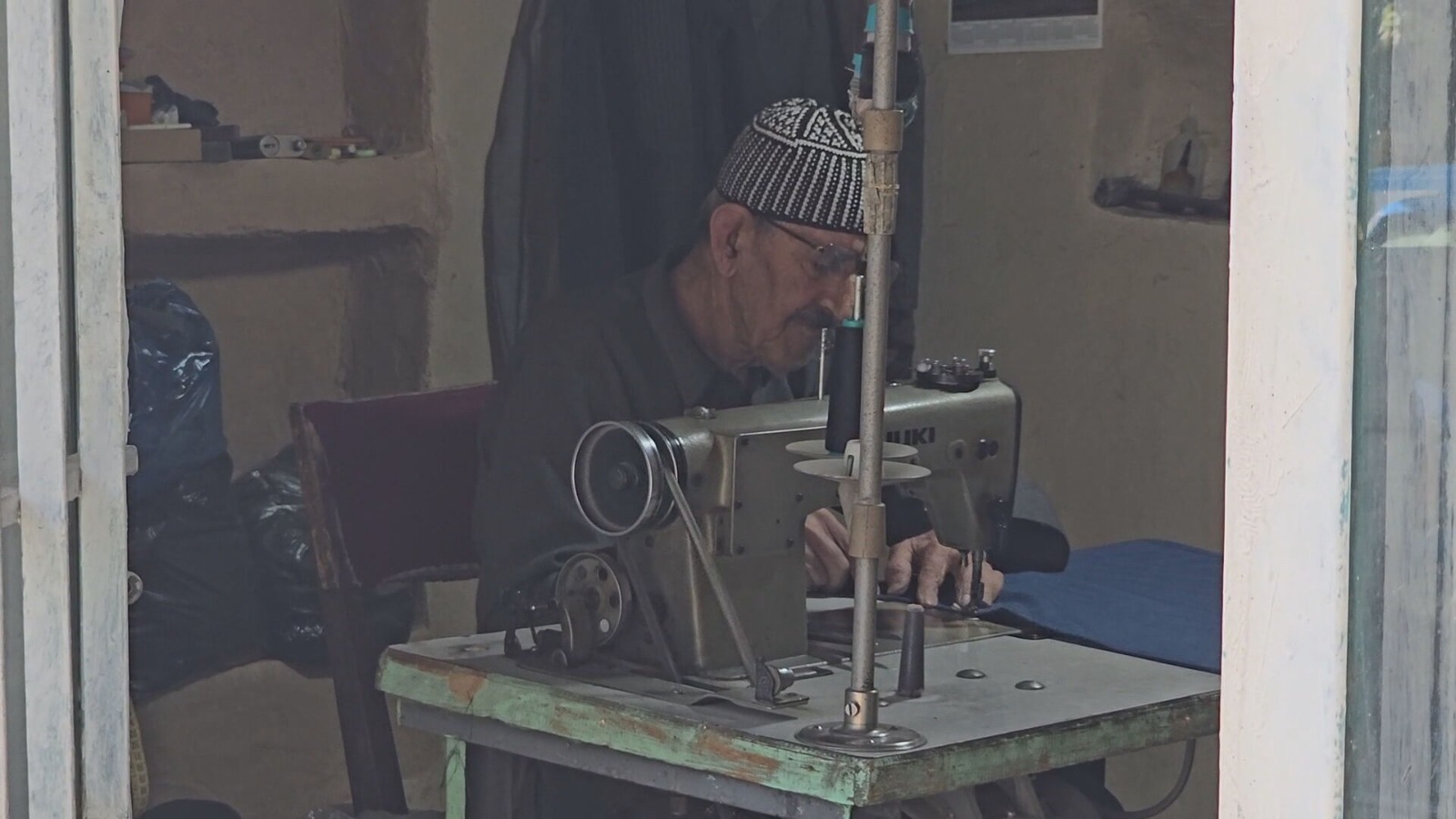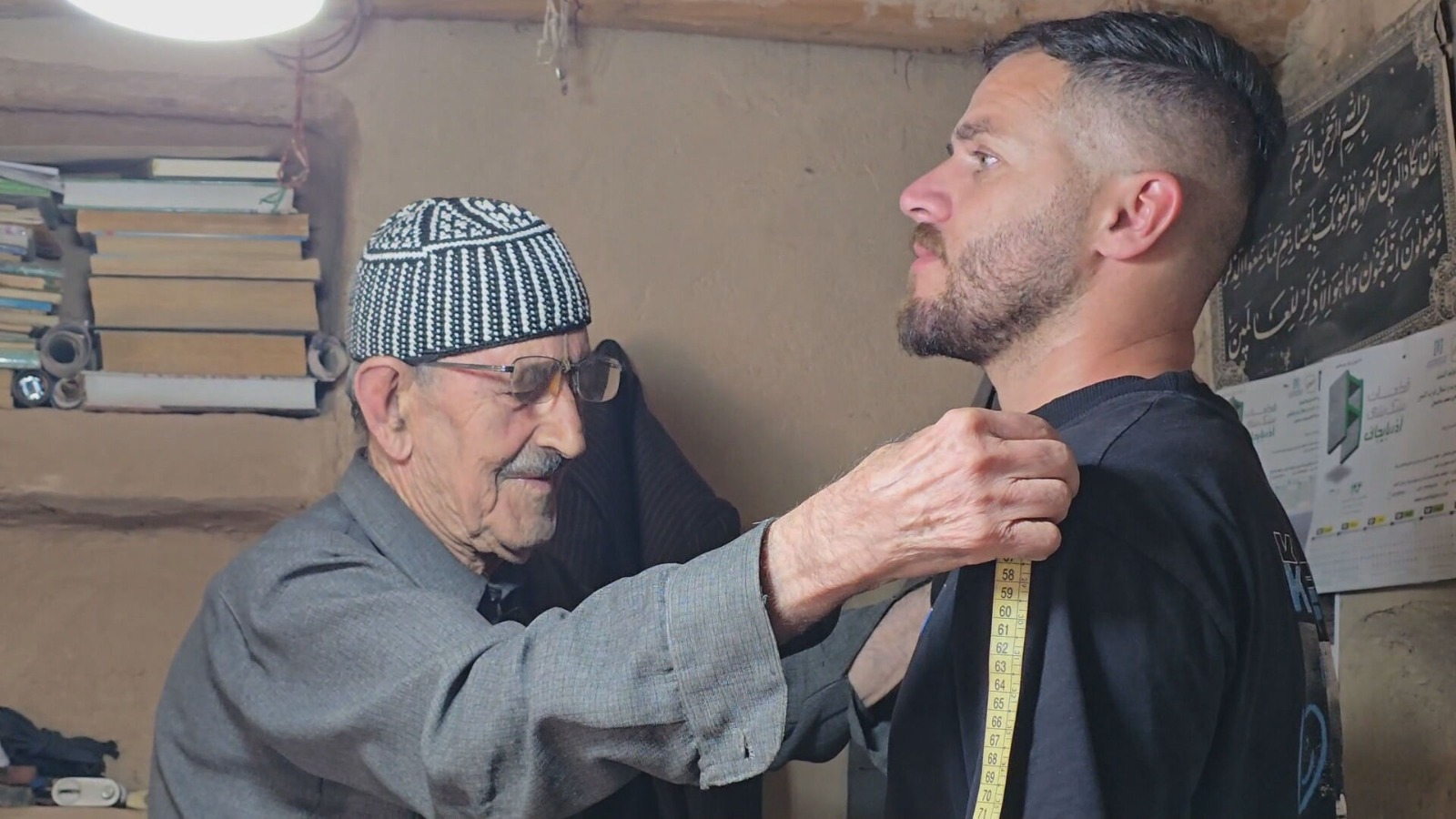A Needle Through Time: How a Kurdish Tailor Preserves Faith, Craft and Memory
In Ravansar, ninety-year-old tailor Mustafa Johari embodies a lifetime of dedication. For over eighty years, his small shop has been a testament to perseverance, passion, and the timeless dignity of labor, weaving the fabric of his community's history one stitch at a time.

ERBIL (Kurdistan24) – In a quiet, sun-drenched alley tucked away within the historic market of Ravansar, where the very air seems saturated with the scent of heritage and the gentle hum of daily life, a singular, rhythmic sound persists. It is the steady, reassuring pulse of a sewing machine, a sound that has marked the passage of time here for decades. Behind that machine, framed by the window of his humble shop, sits Mustafa Johari.
At nearly ninety years of age, "Wasta* Mustafa," as he is known with a blend of respect and affection by the market's merchants and patrons, guides a piece of fabric under the needle with hands that hold the wisdom of more than eighty years of practiced craft. His focus is absolute, a portrait of serene dedication. In a world of fleeting trends and rapid change, he remains a figure of profound permanence, a living testament to a life devoted to passion, perseverance, and the timeless art of the tailor.
For over eight decades, the world has spun on, but Wasta Mustafa’s fingers have never ceased their intricate dance with needle and thread, weaving not just garments but the very stories of the generations that have passed through his doors. His daily ritual is as constant as the rising sun over the majestic Zagros mountains that encircle his city.
His day begins with the first light of dawn, as he opens the doors of his small shop long before the rest of the market stirs to life. This devotion knows no calendar; he continues his work even on holidays, a practice that speaks not of obligation, but of a unique and profound love for a profession that has become as essential to his being as breathing. His shop is his world, and in it, he is the master of his own time, a keeper of tradition in a city steeped in history.

Speaking with a voice that carries the warmth of nostalgia and the quiet confidence of a lifetime of skill, Wasta Mustafa reflects on the vast expanse of his career. "I have lived through it all, from the manual, foot-powered sewing machines to these modern ones," he told Kurdistan24, a faint smile playing on his lips.
"Every era has its tools, but the passion remains one." His words conjure images of a bygone era, of the sheer physical effort required to power the old machines with a rhythmic press of the foot, a stark contrast to the electric hum of his current, decades-old companion.
He recalls a time when his workshop was a hub of sartorial creation, when he would meticulously craft everything from the crisp, official uniforms of soldiers to the elegant lines of coats and trousers, his expertise and precision making him a sought-after craftsman throughout the region. Each garment was a testament to his skill, a piece of functional art sent out into the world.
To step inside Wasta Mustafa’s shop is to leave the present moment behind and enter a space where time has layered itself in textures and memories. The shop is not merely a workplace; it is a small, living museum, a sanctuary that tells the story of an exceptional man.
Its simple clay walls, cool to the touch even on a warm day, seem to hold within them the echoes of decades of conversations, of measurements taken, of fabrics cut and stitched. This is a place of profound simplicity and immense depth.
In one corner, a testament to the other pillar of his life, he keeps a small library. The collection consists of religious books. It is in the quiet moments between customers, in the careful reading of the Holy Quran and the Prophetic hadiths, that he finds solace for his soul and a wellspring of spiritual energy that helps him to continue his work with unwavering dedication day after day.
This fusion of faith and craft is central to understanding the man. It is the source of his remarkable philosophy, a belief he shared with Kurdistan24 that "a person must continue to work until the last day of their life." This is not a lament or a burden, but a deeply held conviction that work is purpose, that to create is to live fully. In a modern world that often views the end of a career as a primary life goal, Wasta Mustafa embodies a different, perhaps older and more profound, wisdom.

His work is not a means to an end; it is the path itself, a daily affirmation of his value, his skill, and his place in the world. The steady whir of his sewing machine is the sound of a life being lived with intention and grace, a life that refuses to be defined by age but is instead measured by the quality of its creations and the depth of its devotion.
The story of Mustafa Johari ultimately transcends the confines of the tailoring profession to offer a universal and powerful lesson in patience, perseverance, and the enduring love of work. In every precise stitch he sews, and in every careful cut of fabric, there is a symbol of a lifetime of struggle and striving.
His small, clay-walled shop has been transformed by his presence into something much more than a place of business. It has become a beacon of hope and an inspiration for his community, a quiet reminder that a life of integrity, faith, and hard work holds a beauty that time cannot diminish.
Wasta Mustafa, the ninety-year-old tailor of Ravansar, remains as steadfast and deeply rooted in his land and his heritage as the majestic Zagros mountains that have watched over him his entire life, a faithful and serene man weaving the final, beautiful chapters of a tale told with a needle and thread.
* Wasta is a Kurdish endearment term that refers to people who have mastered a skill.